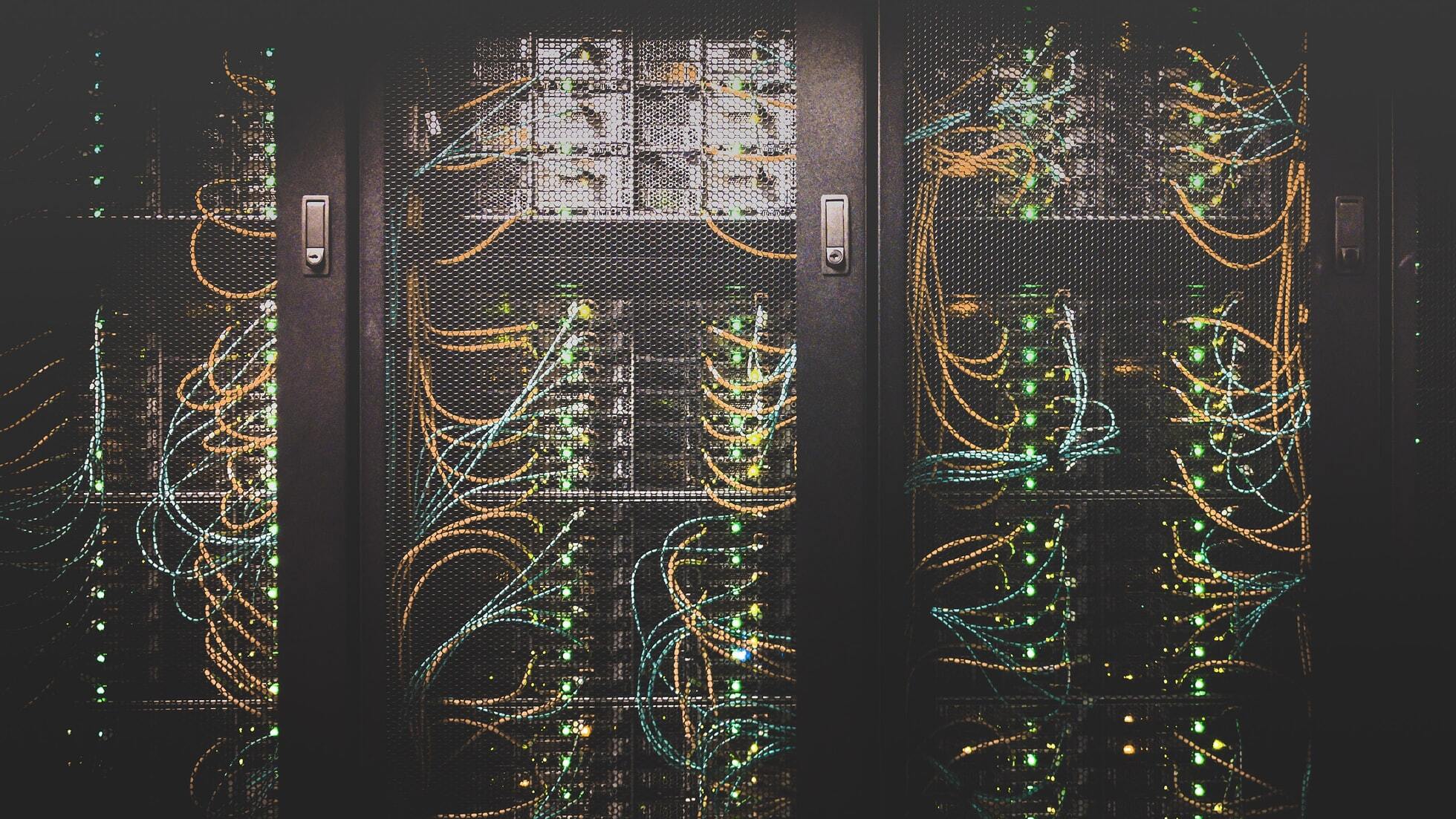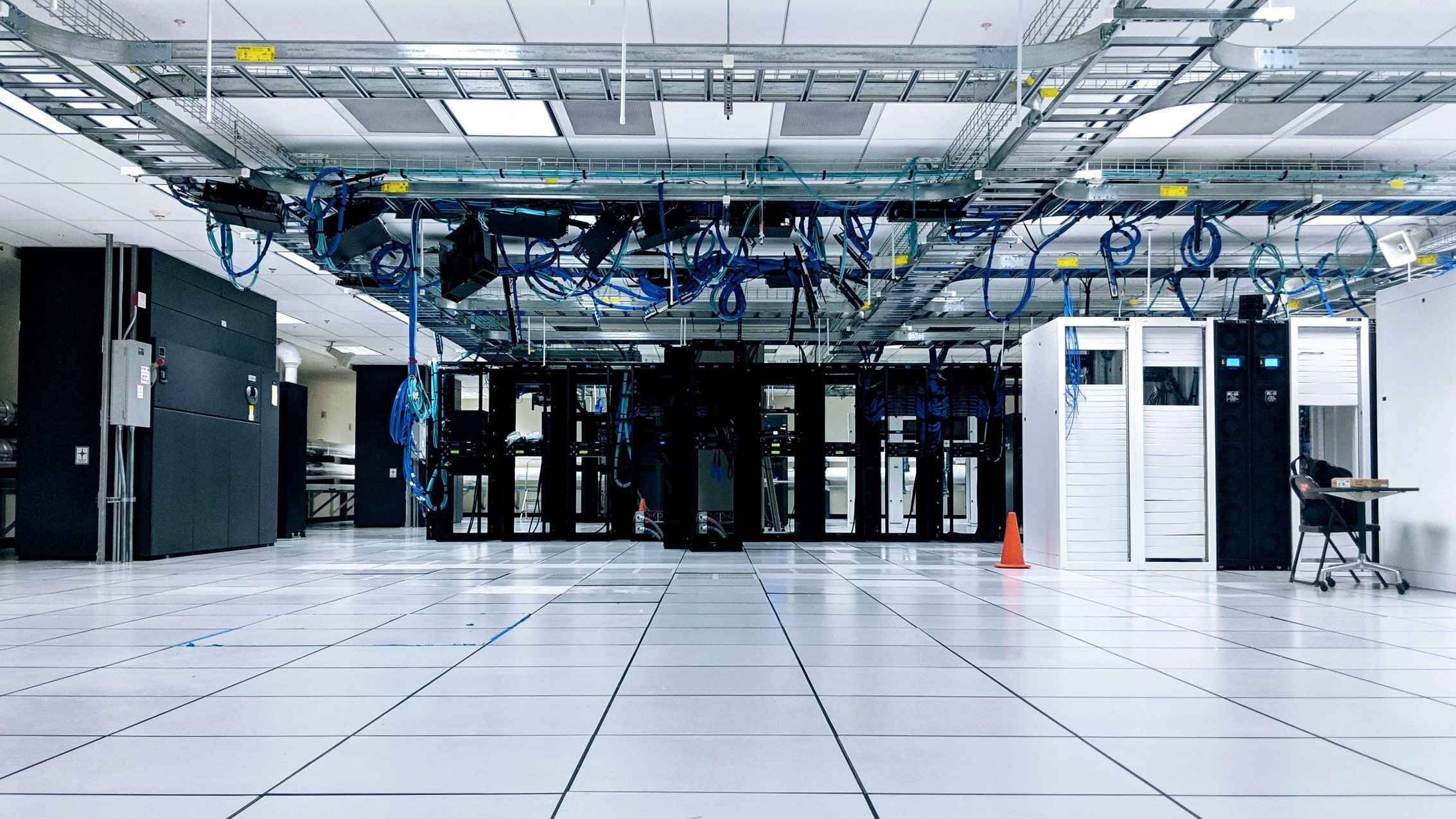Dedicated servers vs VPS: Which is best for your business?
The right server for your business needs

If you’re planning to build a website with one of the best website builders, you’ve likely seen many options regarding servers and the best web hosting. For those who aren’t sure what to go for between dedicated servers vs VPS, two of the more high-performance web hosting options, we've put together this article to explain their differences.
We look at what dedicated servers and VPS are, their pros and cons, and which would be best for your business. Once you’ve made your choice, you can choose the best web hosting provider for yourself.
What is a dedicated server?

A dedicated server is a form of web hosting where a customer has an entire physical server to store their website. Since the customer doesn’t have to share the server’s resources with anyone, they enjoy high performance and robust security. They also have greater flexibility in configuring the hardware and software to their needs.
Dedicated hosting is ideal if you need to handle large amounts of web traffic daily, require advanced security, or operate a highly technical website with your own operating system.
Pros and cons of a dedicated server
Pros:
- Resources and performance: When it comes to raw performance, like CPU/GPU power, RAM, storage, or other hardware and software aspects, dedicated servers come out on top. You won’t find any VPS or shared servers that can outperform a dedicated server, because with the latter you won’t have to share your resources. You enjoy higher speeds and lower latency. If your website is brimming with data-heavy content, like videos, images, and other large files, you need a high-performance server that can minimize the content load time.
- Security: If a customer faces a web hosting security threat on a shared server, it can be problematic for the other users too. Since a dedicated server hosts a single customer, it’s safer than a VPS or shared server. It also has access to more resources, making it easier to ward off security breaches. The enhanced security is especially useful if your website has a payment gateway and needs to be payment card industry compliant.
- Customization: A dedicated server gives you maximum flexibility when it comes to configuring your server and adjusting the resource allocation. If your business is growing rapidly, or has periods when there are dramatic spikes in web traffic, a dedicated server will adapt to these changes and keep up in performance to prevent slowdowns.
- Management: If you opt for a managed web hosting plan with your dedicated server, you can rest easy knowing that there are dedicated engineers and technicians to set up and maintain your server. Customizing or fixing issues also becomes convenient because these experts don’t have to deal with other streams of data on the server, or be restricted by other clients. With more freedom, they’ll have room for more options and solutions when facing issues.
Cons:
- Cost: From high performance to advanced security, a dedicated server will give you the best in hosting. That’s why it’s one of the most expensive of all web hosting options.
- Complexity: Dedicated servers are complex, and require a fair bit of technical knowledge to handle. Most people deal with this by opting for a managed solution, but it adds to the expenses.
What is a VPS?

A VPS is a virtual private server, and is like a mix of dedicated and shared servers. While a dedicated server hosts one customer on an entire server, a shared server sees multiple customers sharing all their resources on one single server.
Sign up to get the BEST of Tom's Guide direct to your inbox.
Get instant access to breaking news, the hottest reviews, great deals and helpful tips.
Unlike either of them, a VPS hosts multiple customers on the same machine, and uses virtualization technology to split the physical server into several virtual servers. Although the users share the same physical server, it’s like they each have their own dedicated server. Each user on a VPS receives a segment of the parent server’s hardware resources, and doesn’t have to share that with others.
An essential feature in the best VPS hosting services is the use of a hypervisor. This is a type of software that enables the host to support multiple users by sharing its resources.
On a shared server, all the users are forced to share the same limited resources. But with a hypervisor, each user is allocated a specified portion of resources. If a user needs access to more resources, they can borrow from another user who isn’t using theirs to the fullest.
Pros and cons of a VPS
Pros:
- Setup: Since a dedicated server is custom-built based on the customer’s needs, the process of communicating with the engineers and creating the machine takes time. But the nature of a VPS is such that it can be set up rapidly. Virtual servers are already set up on built machines, so they only need activation. You can get your project off the ground sooner with a VPS.
- Affordability: On a VPS, several users share the same hardware. So, the operational cost is split across all of them, making VPS more cost-effective than dedicated servers.
- Control: You can install an application on your server and restart it at any time. Although you’re sharing a physical server with other customers, your own VPS can be restarted without affecting the others, so you can run things according to your own schedule.
Cons:
- Configuration: In a VPS environment, there is great flexibility in configuration, but limits in terms of storage and memory allocation. You won’t be able to install large software packages, or anything that could potentially threaten the security of other customers on the server.
- Security: Since there are multiple users on a physical server, a security breach in a different section could prove to be dangerous for you as well.
Dedicated servers vs VPS: Which is best for your business?

Dedicated servers are better suited for enterprise-level clients. These are businesses that receive high web traffic, deal with plenty of financial transactions, have large media files, or need in-depth control to customize their servers.
You also need technical expertise to utilize the full potential of a dedicated server and maintain it. Dedicated hosting plans generally start around the $100 a month range, and can cost more than $600 a month.
A VPS is ideal for small and medium-sized businesses. If you’re starting out and your web audience is growing consistently, a VPS can help handle the traffic and possible surges. VPS hosting is also more affordable, and starts around the $20 a month range, though it can go up to more than $150 for a month.
Finding the right server to set up a website is an intricate and elaborate process. The vast options available in the market can often make it overwhelming to decide what service to go with. When deciding between dedicated servers vs VPS, it’s best to keep in mind your current business situation, and how much it’s likely to scale in the near future.
Further reading on web hosting
If you need to know more about web hosting, read our guide answering the question what is web hosting?, and our list article outlining nine tips to take into account when buying a web hosting service. It's also worth taking a look at our comparison pitting bare metal vs dedicated servers.

Nikshep Myle is a freelance writer covering tech, health, and wellbeing. He has written for popular tech blogs like TechRadar, GadgetReview, SlashGear, and Creative Bloq, and has extensively reviewed consumer gadgets. When he’s not writing, you’ll find him meditating, gaming, discovering new music, and indulging in adventurous and creative pursuits.
-
Jessicamichelle1 Both VPS and Dedicated servers have pros and cons. it depends on your requirements.Reply
